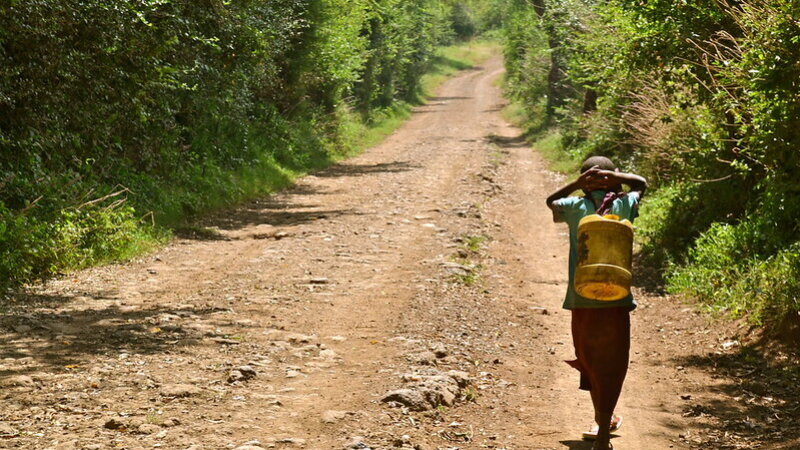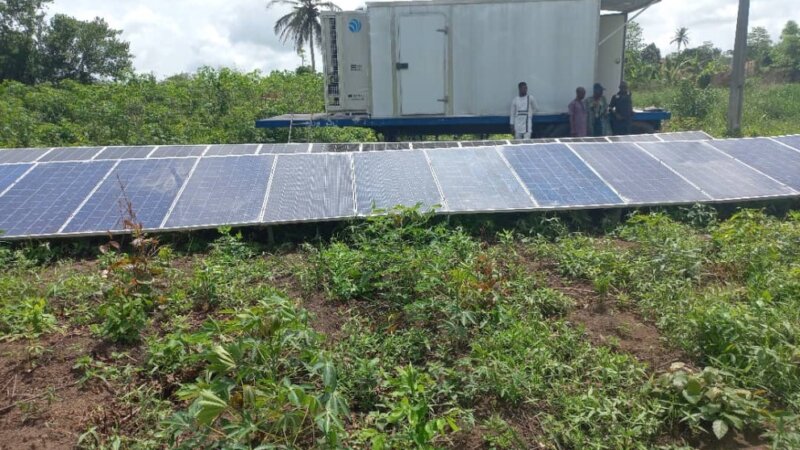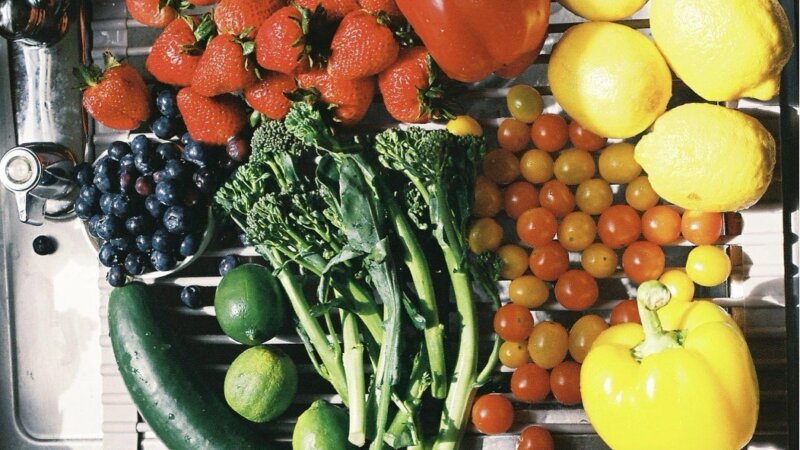World Food Day 2023 Side Events

At this year's World Food Day celebration in Amersfoort we are proud to feature 10 side events organized by partners and coalitions of the food transformation sector. With this update we bring you detailed descriptions of the Side Events which includes speakers or specific activities that will take place during the session.
Saline Water & Food Systems Partnership - launch of the Saline Agri Map
For the Saline Water & Food Systems Partnership, led by NFP & NWP, the private sector and research institutes are the main drivers behind solutions to address salinity. However, there is a large knowledge gap between implementers, the research network, and policy makers.
Together with key partner Vrije Universiteit Amsterdam we are currently developing the Saline Agri Map (SAM); an online, interactive map showcasing a range of key saline agriculture initiatives from the past and present in different regions of the world. The map
During this session, the Saline Agri Map will be launched. We will take you through the map and learn about which kind of information is available, and which features you can use. In addition, we will highlight a few exemplary (private sector) projects, and discuss in a panel setting some of the main challenges of implementing saline agriculture projects in the Global South from a private sector organization’s perspective.
Panel:
Pier Vellinga, Vrije Universiteit Amsterdam (VU)
Bas Bruning, the Salt Doctors
Melle Leenstra, Ministry of Foreign Affairs
Simkje Kruiderink, Ministry of Agriculture, Nature and Food Quality
Judit Snethlage, Wageningen University & Research (WUR) - moderator
Inclusive Finance for Sustainable Food Systems
Hosted by European Microfinance Platform (e-MFP)
The session will highlight the role of inclusive finance in creating sustainable food systems. It will present the main challenges faced by financial organizations, as well as their approaches and efforts to safeguard access to quality and affordable food for vulnerable populations and to increase resilience of food systems. The following speakers will be presenting during this event:
Ferdinand Tuinstra – Financial Advisor / Board member at e-MFP
Sam Mendelson – Financial Inclusion Specialist at e-MFP
Femke Bos - Director Business Development at Invest International
Thon Huijser - Global Head Agribusiness at Oikocredit
International responsible business conduct: from legal to moral to impact.
Hosted by the foodFIRST coalition in collaboration with the Social Economic Council (SER) and other experts.
The regulatory environment is quickly changing for the agrifood industry that operates at international level. This side event aims to inform on the legal requirements that will apply to business practices and continue the dialogue with the private sector, including small and medium enterprises and other stakeholders. We will discuss how companies can best be supported to make sure that we go beyond legal compliance and achieve durable developmental impact.
The foodFIRST coalition will host the side event in collaboration with the Social Economic Council (SER) and other expert organisations. The event will be open to all stakeholders, while companies, in particular SME’s, are especially invited to join. This side event will be hosted by the foodFIRST coalition in collaboration with the Social Economic Council (SER) and other experts.
The Private Sector as a Partner for Scaling Up Research in the Global South
Hosted by NL-CGIAR Strategic Partnership
The event aims to inform you about the science of scaling and the critical nexus between research, innovation and the private sector to drive tangible impact in food and nutrition security in the Global South. The session begins with a presentation on the science of scaling, providing you with a strong theoretical foundation. This will be followed by an expert panel discussion that shifts from theory to practice. The panel, with representatives from various backgrounds, will explore challenges and best practices for scaling up research in the Global South by focusing on root and tuber crops innovations. A large part of the event will be reserved for your contribution from the audience, fostering a dynamic exchange of ideas and experiences.
The experts contributing to the session are:
- Cees Leeuwis - Wageningen University and Research, professor of collaborative research, communication and change). Previous Senior Expert of NL-CGIAR Strategic Partnership
- Jan Low - CGIAR, principal scientist, leader of the Sweetpotato for Profit and Health Initiative & Co-recipient of the 2016 World Food Prize).
- Conny Almekinders - Wageningen University & Research, associate professor with a focus on agricultural technology development. Previous Senior Expert of NL-CGIAR Strategic Partnership
- Peter Gildemacher - co-founder and future director of Sepia Foundation
- Karst Weening - NAO (Dutch Potato Organisation), policy officer international affairs
Cultivating Change: Climate Action through Private Sector Food Innovation
Hosted by Clim-Eat and DSM
The private sector is known for its innovation prowess and its capacity to drive transformative change. In the context of food systems, private sector entities play a vital role as key contributors. According to the World Bank, the private sector invests approximately USD 13 billion annually in agricultural research and development, out of the USD 56 billion total. However, despite its potential to drive change, challenges and opportunities exist within the private sector and in relationships with other stakeholders. These challenges and opportunities are related to profitability, vested interests, competition, and the potential for collaboration to create a sustainable food system. This side event will dive into the potential and trade-offs of private-sector innovation and explore how private-sector actors are shaping their innovation pipelines to deliver a more sustainable, nutritious and resilient food system.
Food Loss Reduction in Avocado and Dairy Value Chains in Kenya
Hosted by Food waste reduction and Food Quality Living Lab (FORQLAB)
VHL initiated a living lab on food loss, inviting all value chain actors in a cooperation. It proves to be a challenge to initiate and develop a living lab: how to get all actors involved, do they discuss the things that need to be addressed, how do we learn, what is our learning agenda? How to improve PS involvement.
Investing in Agroecology Entrepreneurship to achieve Sustainable food systems
Hosted by Agroecology and Business CoP
Agroecological Entrepreneurship is growing in East Africa as one of the ways of promoting agroecology. Many Agroecology entrepreneurs (AEEs) are starting and looking to grow businesses that are enabling farmers to practise agroecology. However the majority of the AEEs lack critical early stage support to become profitable and investable businesses yet they account for 2/3rds of jobs in low income countries which is the case for Uganda and Kenya. With the right support, they can potentially further grow the local wealth through jobs and revenue, promote biodiversity, food and nutrition security among others. The objective of the side event is to amplify promotion, learning and stakeholder collaboration around Agroecology entrepreneurship.
Informality matters: the vital role of the biggest Private Sector in creating sustainable food systems
Hosted by Food Systems Approach CoP (SNV, WUR, BoPInc, IIED)
The informal sector is often overlooked, neglected, or outright criminalized but it plays a vital role in the food systems of Africa, Latin America and Asia. If we want to move towards a more inclusive, more sustainable food system generating nutritious, healthy food for all, then we need to engage the informal space. Our IIED-SNV paper concludes with: “If we are to meet people where they are, in their food systems that are doing the heavy work of food and nutrition security for the poor, then informality cannot be an excuse for continued underinvestment of attention and resources. Any serious strategy for food systems transformation should be working with informality rather than hoping for it to be eclipsed by structural transformation.”
Moderators: Dara Elmasri & Zala Zbogar, SNV
Panellists:
Charles Dhewa, CEO Knowledge Transfer Africa (KTA), Zimbabwe
Milka Shitandi Omukuba, programme manager BoPInc, Kenya
Gupta Banjara, project manager SNV Nepal & Rwanda
Closing remarks: Bill Vorley, author IIED/SNV informality paper
True Pricing: Beyond the Oatmilk Elite
Hosted by Global Partnership for the True Price of Food
In this side session, moderated by Netherlands Food Partnership, we will be giving the floor to private sector actors who have experimented with True Pricing. This includes creating transparency around the true costs of food products as well as actually giving consumers the option to pay the true price for food products. We ask Albert Heijn and Tony Chocolony about the insights they gained from this. They will elaborate on whether they have gained insight on how to make food value chains more just and sustainable, while keeping food products accessible and affordable to all - not just the elite. They will highlight opportunities, but also the challenges they face.
Striking a Balance Podcast: Navigating Dilemmas in Plant Breeders' Rights and Farmers' Rights
Hosted and to be Published as Part of a Podcast Series by SeedNL
Plant Breeders' Rights (PBR) and Farmers' Rights (FR) are frequently debated policy provisions that have a significant impact on the seed sector, particularly within the context of food and nutrition security, agro-biodiversity conservation and economic development in the Global South. But perspectives and priorities on these two policy provisions are often divided
Policymakers and development practitioners often encounter complex situations where they must address the challenges posed by these debates in their national seed policies or in seed sector development programmes. This SeedNL session facilitates dialogues with experts from these stakeholder groups, enabling them to share their main concerns, identify overlapping areas of tension, and find collaborative ways forward, rather than remaining stuck in an often polarised discussion. It will also serve as the first step in creating the new SeedNL podcast - coming soon!
Author

Mark Fonseca Rendeiro
Communications Officer - NFP





